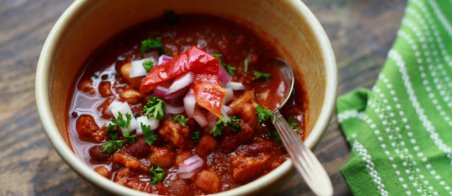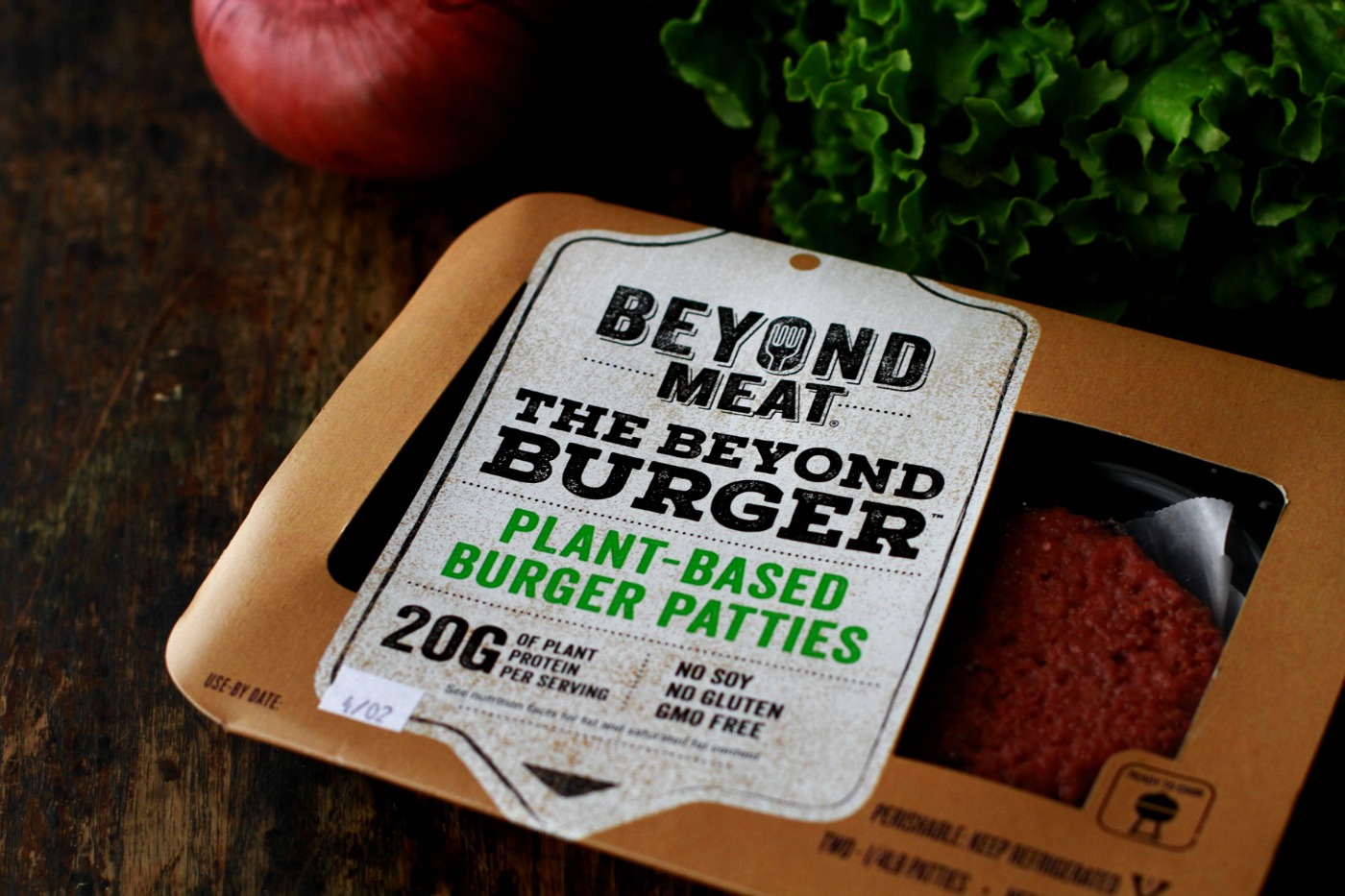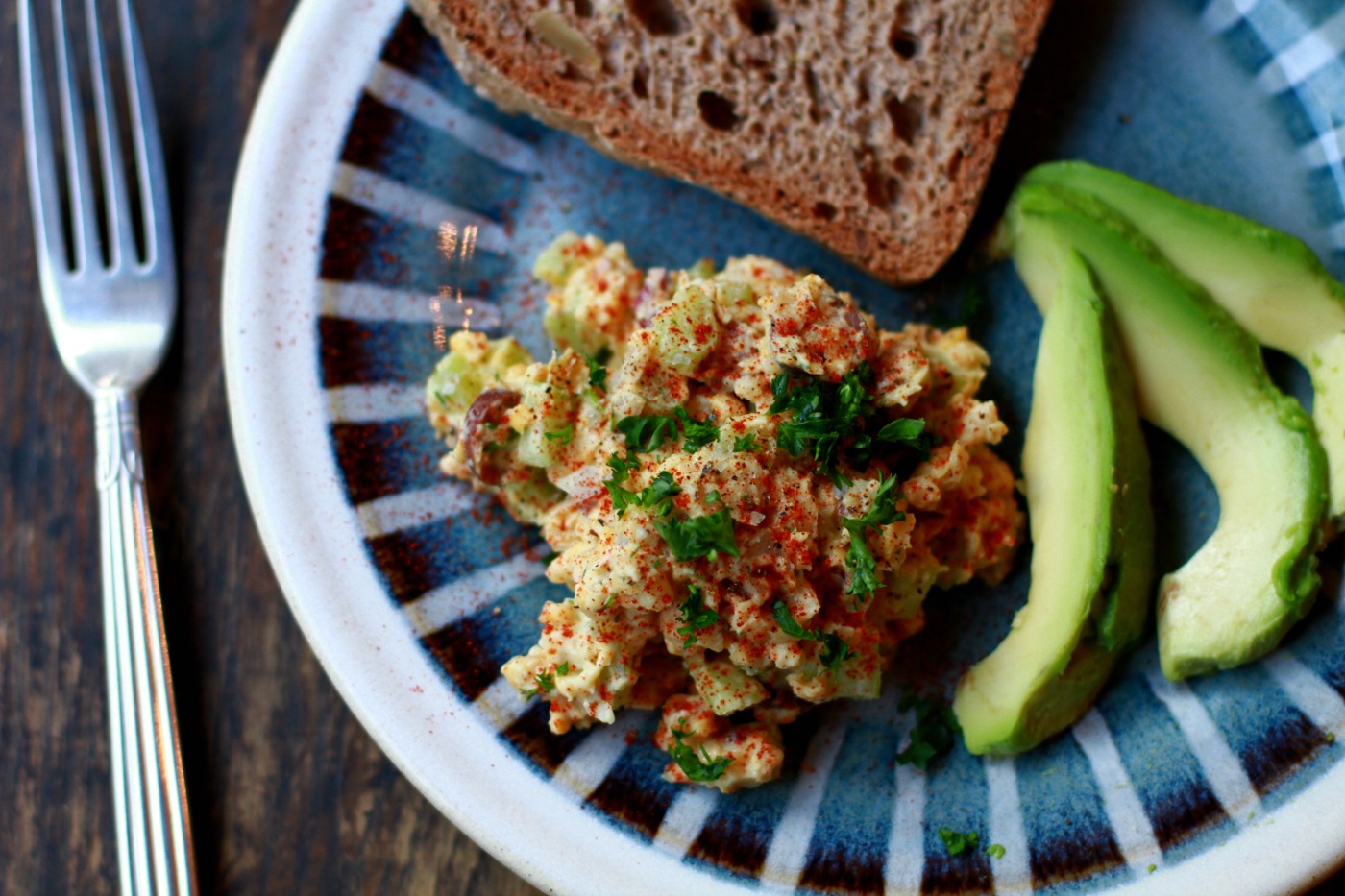One of the first concerns that people encounter when trying to eat more plant-based is: but how will I get enough protein? It's a valid question. After all, the “eat more protein” message has been drummed into our heads for decades by the massive ad campaigns of the beef, chicken, pork, egg, and dairy councils. You know — the organizations who profit when we eat more protein.
In today's post, we're going to venture into that strange territory outside of those mainstream messages — beyond the land of “beef, it's what for dinner” and “pork be inspired” (or “the other white meat”) or the “incredible, edible egg.”
We're going to answer the following questions:
- How do we know if we're eating enough protein?
- Do I need to add protein powder to my smoothies?
- Do I need to have large amounts of protein at every meal?
Now before we get started, let me just say that I'm not suggesting that protein's not important.
Because of course it is. There's a reason why protein is one of the three macronutrients, along with its macro buddies, carbohydrate and fat.
Protein intake is essential for building muscle, repairing tissues, producing enzymes, and a whole host of other functions in the body.
But most of us in the U.S. actually consume far more protein than our bodies require — and that can cause some serious issues in the body.
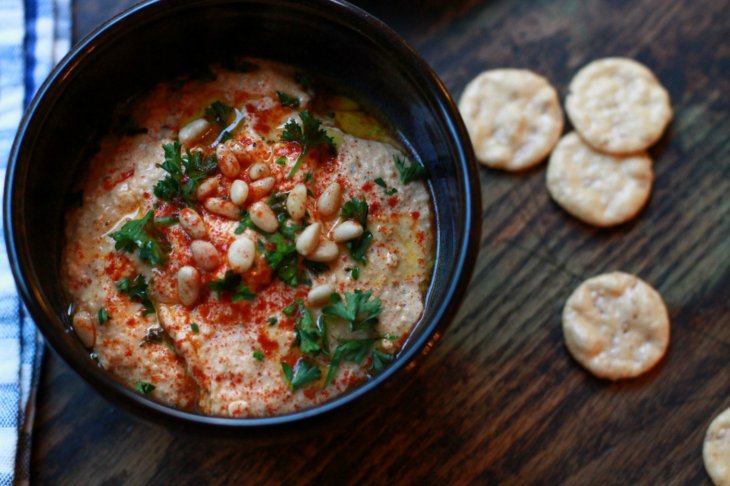
Are you a proteinaholic?
Let's get started with a quick quote…

“I am disturbed by the fact that protein has become a veritable nutritional rock star, omnipresent in our food and advertising like never before. We seemingly cannot get enough of protein, and this reality is leading us down a very dangerous road. In fact, ‘eat more protein' may be the worst advice that ‘experts' give to the public.”
— Garth Davis, M.D., author of Proteinaholic
Time out. Let's rewind on that last part:
“Eat more protein” may be the worst advice that “experts” give to the public.
Now why would Dr. Davis say that?
Because the topic of protein is one of the most controversial and confusing dietary issues being discussed these days.
And yet, the answer is quite simple: we don't need as much protein as everyone seems to think we do.
This comes up especially for people who are following a plant-based diet — or a mostly plant-based diet. Well intentioned friends and family members hear what you're doing and say:
But you need more protein!
You need meat/chicken to survive.
Humans were born to eat meat/chicken.
You'll get sick if you don't eat meat/chicken.
So if you're eating more plant-based, no need to worry. And you don't even have to eat tempeh to get your protein requirements taken care of.
But I sure love it. Alas, that's another topic (and recipe!) for another day…
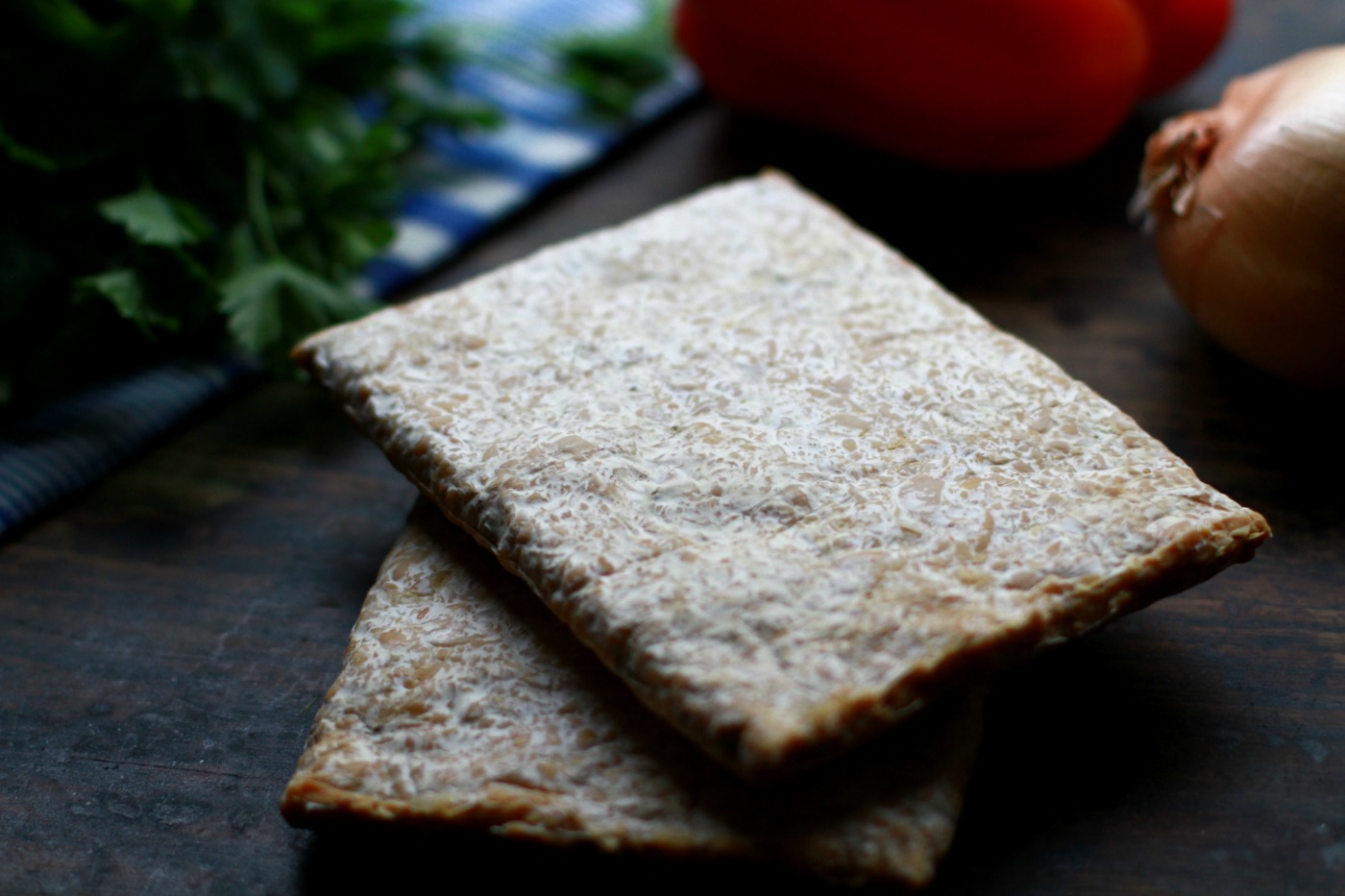
Today's discussion isn't about eating meat vs. not eating meat.
I'm not pushing you either way, because that's a highly individual matter. Although, if you want to go more plant-based, I can totally help in that department.
Instead, here's what I encourage you to focus on: don't obsess about protein — and start making fruits and vegetables (along with beans and whole grains) your #1 dietary priority.
Number 1!
Because if you do, you'll be getting the fiber, antioxidants, phytonutrients, compounds, vitamins, minerals, and natural water content you need to thrive, as well as balance and heal the body.
Making fruits and vegetables the majority of your plate — and working in some beans and grains every day — will actually deliver adequate protein as well.
Bottom line, if you're eating enough calories, you're getting enough protein.
Protein deficiency is extremely rare in the U.S., and typically only occurs when people are literally malnourished or starving.
So How Much Protein Do You Need Anyway?
It's an important question.
So let's check in with the USDA on their recommended daily intake.
The good news? Not a lot — it's an easy number to reach on a diet that involves minimal (or no) animal protein.
Here's how it breaks down…
According to the USDA, the Dietary Reference Intake (DRI) for protein is 0.8 grams of protein per kilogram of body weight. To calculate your weight in kilograms, divide your weight in pounds by 2.2, and then multiply by .8.
For example, let's do the numbers for a 140-pound woman:
140 pounds / 2.2 = 63.63 kg x .8 = approximately 51 grams of protein/day
Or — check out the interactive DRI calculator online — kind of a handy tool if you like that sort of thing.
The resulting amount for protein equates to roughly 10-15 percent of your total calories.
So let's say our 140-pound woman eats chicken once a day — 4 ounces equates to about 36 grams of protein. That's getting pretty close to her full protein requirement for the day.
The problem is that most Americans are eating far more than 4 ounces at a meal — they're often eating double that.
On top of that, they're usually eating animal protein or protein products (i.e. whey protein powder) 2-3 times a day — which could put you well over 100 grams of protein in one day.
Why Is Eating Too Much Protein a Potential Problem?
Eating excess protein — more than our daily recommended amount — can increase risk for a lot of unpleasant conditions (Source: Physicians Committee for Responsible Medicine, “The Protein Myth“). These include:
- Stress on the kidneys and kidney disease — When people eat too much protein, they take in more nitrogen than they need. This places a strain on the kidneys, which must expel the extra nitrogen through urine.
- Heart Disease — Typical high-protein diets (i.e. Atkins) are extremely high in dietary cholesterol and saturated fat. The effect of such diets on blood cholesterol levels is a matter of ongoing research. However, such diets pose additional risks to the heart, including increased risk for heart problems immediately following a meal.
- Cancer — Populations who eat meat regularly are at increased risk for colon cancer, and researchers believe that the fat, protein, natural carcinogens, and absence of fiber in meat all play roles.
- Osteoporosis and kidney stones — Diets that are rich in animal protein cause people to excrete more calcium than normal through their kidneys and increase the risk of osteoporosis. According to the Harvard School of Public Health, “following a high-protein diet for a long period of time could weaken bone.”
Deep breath.
I know reading all of that can be a big bummer if you love chicken wings or cheeseburgers. I mean, I grew up in Buffalo, NY for God's sake — I was practically raised on chicken wings!
But I can assure you, there is a ton of amazing tasting plant-based protein out there — including meaty, plant-based burgers.
Seriously. We grilled these over the weekend, and they were incredible. Tasted just like the real thing.
Protein: a day in the life…
Let's take a look at what it would take to get to the optimal, USDA-recommended amount of protein in one day, based on the sample of a 126-pound woman.
This diet isn't exactly what I'd recommend for my clients — for example, where are the leafy greens??? — but you can see how easily the protein recommendations could be achieved simply be adding some beans and nuts to the diet.
Note: this table from the Vegetarian Resource Group uses a formula based on .9 g/protein per kg body weight (USDA uses .8).
See how easy it is to get your protein requirement for the day?
No need to add protein powder to your smoothies — or eat chicken or beef or fish, at least from a protein standpoint.
And no need to scan the labels of snack bars to see which one has the highest amount of protein. It's irrelevant.
Enjoy an apple instead!
Ideas for healthy protein-rich foods
So let's make a mini-meal plan, okay? Here's what a typical day looks like when people are participating in my Camp Kale online program:
- Breakfast — A fruit-based smoothie using nut/seed milk, hemp seed and/or flax seed.
- Lunch — A big salad with 2-3 different kinds of veggie toppings, some tempeh (my fave) and/or chickpeas.
- Snack — Apple slices with 1-2 tablespoons of almond butter or a scoop of hummus.
- Dinner — A bean-based soup, served with salad and some roasted potatoes.
If you're looking for ideas to see how you might incorporate more plant-based protein into your meals, here's a helpful chart from the Vegetarian Resource Group.
I hope this post has alleviated any concerns you might have about not getting enough protein.
If you could use some protein-rich recipes, feel free to check out:

If you try the recipes, tag me over on Instagram — I'd love to see your kitchen creations.
Have fun in the kitchen!
~Monica

